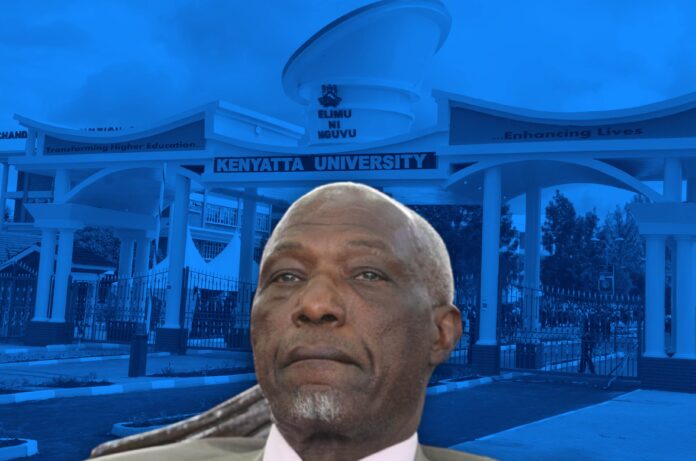By Andrew Kariuki
A bitter succession dispute at Kenyatta University has landed in the Employment and Labour Relations Court, with alumnus Lawrence Omondi Chero accusing outgoing Vice-Chancellor Prof Paul Kuria Wainaina of unlawfully rigging the recruitment process for his successor through restrictive, seemingly personalised criteria.
Filed on 14 November 2025, the petition contends that Wainaina acted beyond his mandate under the Universities Act, Kenyatta University Charter, and Statutes by establishing an internal committee to draft qualification standards for the next VC, a role exclusively reserved for the University Council, Public Service Commission (PSC), and Cabinet Secretary for Education.
Wainaina’s term expires on 26 January 2026 after two years as acting VC, one full five-year term, and a three-year extension. On 14 July 2025, he issued a memo convening a special Senate meeting for the following day with no agenda disclosed. Minutes reveal the sole focus was adopting the committee’s report on VC recruitment criteria, which the Senate substantially endorsed despite procedural concerns.
The proposed standards demand at least 15 years of senior leadership in specific roles, five uninterrupted years as Deputy Vice-Chancellor or Principal of a constituent college, and mandatory senior management training of at least four cumulative weeks.
Chero argues these deviate sharply from PSC adverts in 2005, 2015, and 2017, and from norms at universities including Nairobi, Moi, Egerton, JKUAT, Maseno, Garissa, and USIU.
Senate members raised red flags. Some questioned the five-year DVC requirement, noting KU deans manage larger cohorts than entire universities elsewhere. Others warned of excluding internal candidates and flagged impartiality risks, given committee members’ potential interest in the post.
Despite objections, the Senate approved the criteria and added that international applicants could use passports instead of identity cards.
Chero asserts the process creates a conflict of interest. Government circulars annexed to the petition require outgoing CEOs in state corporations to step aside from succession planning.
“The 1st Respondent should proceed on terminal leave,” Chero states, warning that continued involvement risks long-term leadership instability.
Supporting documents include the opaque Senate memo, minutes showing agenda concealment, and PSC adverts demonstrating broader, transparent eligibility. The committee’s removal of “or equivalent institution” phrasing further narrows the applicant pool, allegedly to favour specific individuals.
The petitioner seeks orders quashing the Senate-approved criteria, halting Wainaina’s participation, and compelling adherence to PSC-led recruitment. The case highlights governance crises in Kenya’s public universities, where succession battles increasingly end in litigation amid accusations of nepotism and procedural sabotage.
Legal analysts say the outcome could set precedent for institutional autonomy versus statutory oversight. “If proven, this undermines merit-based leadership,” said constitutional lawyer Bobby Mkangi. The court has yet to schedule a hearing.



















